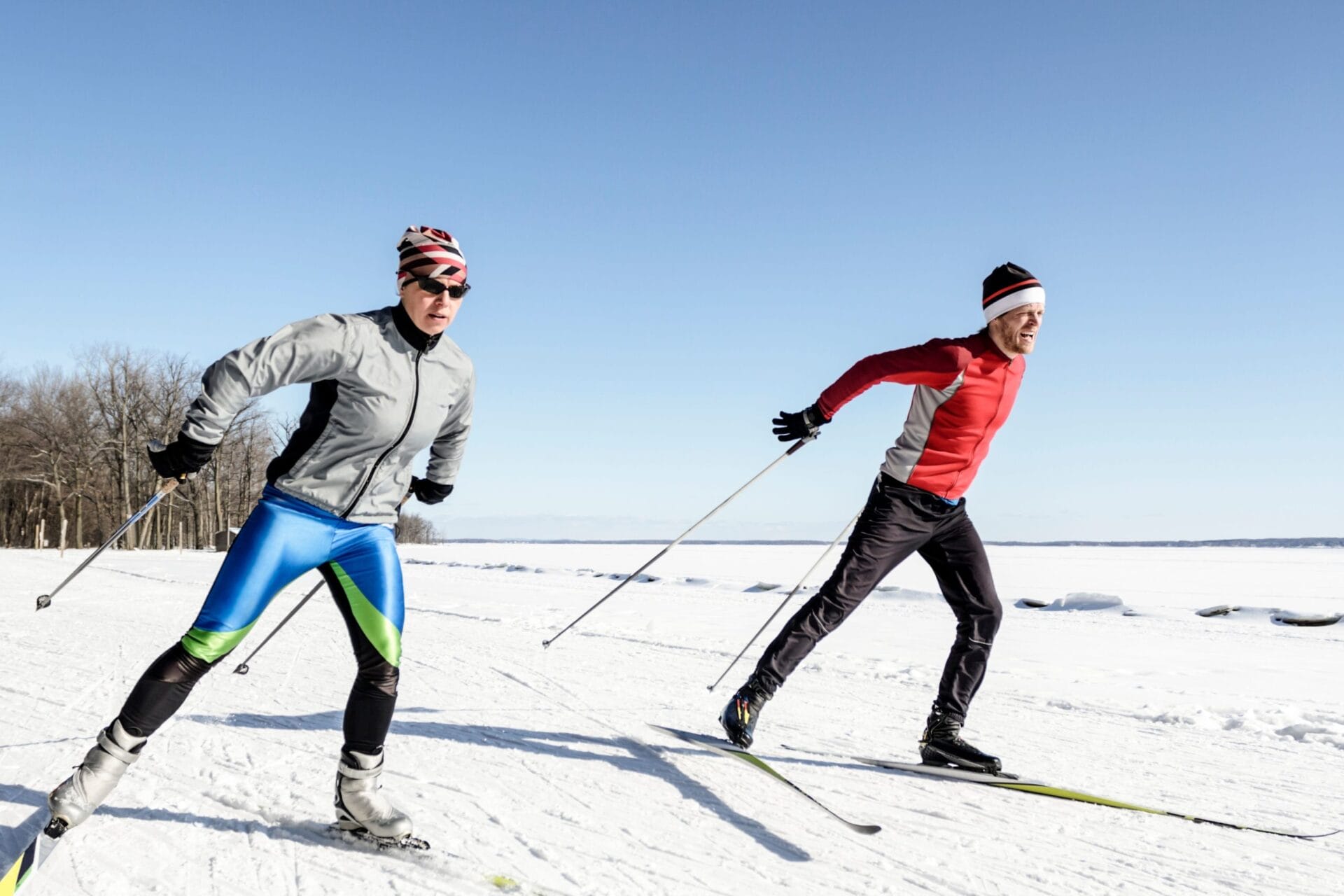Many of us feel we’re working harder & faster than ever. Could cross-country skiers offer a solution to make the pace more sustainable?
The proportion of employees who “strongly agree” their job requires that they work “very hard” increased from 30% in 1992 to 46% in 2017.
Recent government-funded surveys show a steady increase in “work intensification” over the past few decades:
- Working to “tight deadlines” for at least ¾ of the time has jumped from 53% to 60%.
- Working at “very high speed” for at least ¾ of the time has soared from 23% to 45%.
But why? Client demands and instant communication are likely culprits. In the ’90s, people cited “own discretion” as the main factor in their work intensity. Nowadays, it’s more about “clients or customers.” So, how do we find a solution?
If you’ve been reading this blog for a while, you’ll likely already know that I’m fascinated by how athletes can reveal general principles concerning human wellbeing and performance that transcend sport and could be applied in a workplace context, too. The training of world-class cross-country skiers may provide an example of this.
What can we learn from athletes which applies to workplace wellbeing?
World-class cross-country skiers train for around 500 hours each year. A lot of research has gone into analysing how this training time is distributed across different intensity zones. Many people assume that elite endurance athletes spend vast amounts of time pushing themselves in lung-bursting efforts at their physical limit.
While it’s true that these performers are capable of super-human feats in both training and competition, surprisingly, ~80% of their training time is spent at low intensity. And by low intensity, I mean a level of effort which means that they can speak in full sentences without taking a breath. Only 10-20% is spent at high intensity, with little time spent at moderate intensity. Several studies demonstrate that this approach is associated with the greatest improvements in performance.
However, this ‘polarised’ approach contrasts with many amateur athletes, who spend nearly all their time at moderate intensity, without a clear focus, never training at low intensity, but carrying too much fatigue from their ‘middle gear’ work to push their true limits in intense sessions. As a result, amateur athletes are often tired & rarely reach their potential.
Athletes can reveal general principles in human wellbeing and performance
The training approach of these world-class endurance athletes reflects a general human performance principle; our body & brain are well adapted to either short sprints at high intensity with a clear goal, where we would capture prey or evade predators, or long stretches at low intensity when we would explore & forage. Unfortunately, modern life & work are more like the training of amateur athletes. We’re stuck at moderate intensity, permanently on-call, without a clear focus. Consequently, we find it difficult to focus at high intensity when needed and then struggle to switch off when we want to.
So, what’s the solution? Try to live & work more like a cross-country skier by polarising your work; split your day into three ‘cognitive gears’.
High Cognitive Gear is akin to a high-intensity interval. Three features characterise high cognitive gear; the work is demanding, complex & requires sustained focus. Synchronise your high cognitive gear work with the period in your day when you feel at your best.
Low Cognitive Gear represents time spent resting & recovering or exploring & pondering new ideas. Schedule Low Cognitive Gear time to coincide with when your energy is lower. Remember, low-gear idle time is not a waste of time.
Middle Cognitive Gear represents the moderate-intensity menial tasks that eat up energy & time. We can’t eliminate middle gear work, but we can intentionally set boundaries for middle cognitive gear activities so this work does not diffuse throughout the day.
This week, could you challenge yourself to think more proactively about periods of effort & recovery in your cognitive work? This shift to proactive planning can help to improve focus, reduce stress and enhance recovery.
Sustainable performance academy
You can see a short video where I talk about the concept of cognitive gears by following this link or clicking on the thumbnail. The video is part of my online ‘Sustainable Performance Academy’ course. It’s designed for organisations looking for evidence-based, actionable content to support their employees’ wellbeing and performance.
https://vimeo.com/490226442/e6aeef0efb?share=copy
Thousands of participants have now completed the course and have experienced:
- 23% reduction in stress experiences
- 15% increase in the daily experience of control
- Up to 54 minutes improved sleep duration
The course is available through my platform or as white-labelled content, which can be licensed and distributed directly to employees. For example, we’ve re-branded the content ready for distribution through several companies’ internal learning and development platforms.
If you’re interested in finding out more about licensing the content for your team, please feel free to get in touch. You can also access the content as a B2C user here.

